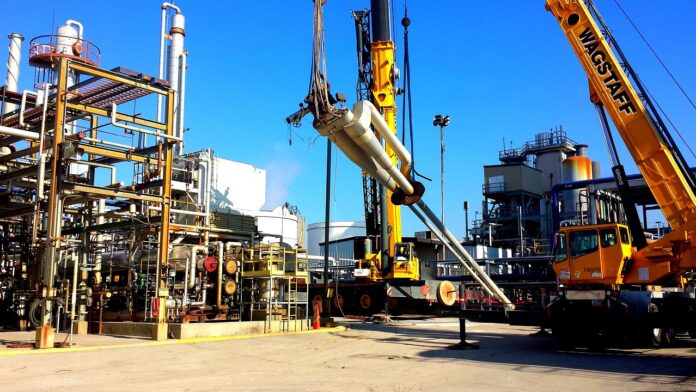When it comes to energy production, oil companies find themselves facing a dual challenge: meeting the world’s insatiable demand for oil while also minimizing their environmental footprint. One crucial aspect of achieving this delicate balance is regular inspection and maintenance of their infrastructure. Whether it’s offshore drilling platforms or onshore refineries, the stakes are high. Neglecting essential inspections can lead to catastrophic accidents, environmental disasters, and massive financial losses.
In this blog post, we’ll delve into the four key areas that oil companies must routinely inspect to ensure safety, environmental responsibility, and the sustainability of their operations. So, without further ado, let’s dive in!
Oil Rigs and Platforms
Oil rigs and platforms are pivotal components of offshore oil extraction operations. Regular inspections are imperative to ensure the safety of personnel, protect the environment, and safeguard the substantial financial investments involved. With innovative inspection services, companies are able to enhance the efficiency and accuracy of their inspections, reduce downtime, and minimize the risk of accidents or oil spills. Additionally, safety equipment and emergency systems, such as fire suppression mechanisms and life-saving apparatus, are scrutinized for proper functioning.
Through these meticulous examinations, oil companies can prevent catastrophic accidents, maintain regulatory compliance, and uphold their commitment to environmental responsibility in the challenging offshore drilling environment.
Pipelines and Transportation Infrastructure
Pipelines and transportation infrastructure play a pivotal role in the oil industry’s supply chain. Regular inspections are indispensable to ensure the safe and efficient transportation of oil and petroleum products. These inspections involve a thorough examination of pipelines to detect any signs of leakage, corrosion, or mechanical damage that could result in environmental disasters or product losses.
Transportation vehicles, including tanker trucks and railway cars, are also meticulously inspected to confirm compliance with safety standards and to prevent oil spills during transit. Maintaining the integrity of these critical components is vital for the industry’s environmental responsibility and the safe delivery of oil to its destination.
Refineries and Processing Facilities
Refineries and processing facilities are the heart of the oil industry, where crude oil is transformed into valuable petroleum products. Regular inspections are essential to ensure these operations run smoothly and safely. These inspections encompass a comprehensive evaluation of equipment such as storage tanks, pumps, and valves, aiming to identify potential issues like leaks, corrosion, or mechanical failures.
In addition to equipment scrutiny, safety protocols, and emission control systems are closely monitored to mitigate operational risks and environmental impact. By conducting these regular inspections, oil companies can uphold operational efficiency, maintain regulatory compliance, and prioritize the safety of both workers and surrounding communities.
Environmental Impact Assessments
Environmental impact assessments (EIAs) are critical components of responsible oil industry practices. These assessments involve thorough evaluations of the ecological consequences of oil operations, including drilling, transportation, and refining. Monitoring air and water quality, studying the effects on local wildlife, and assessing pollution control measures are all integral parts of EIAs.
Regular assessments ensure that oil companies adhere to environmental regulations, minimize their ecological footprint, and implement effective measures to mitigate environmental harm. By conducting ongoing EIAs, the industry can strike a balance between energy production and environmental stewardship, striving to minimize its impact on ecosystems and preserve the planet’s health for future generations.
The oil industry’s commitment to safety, environmental responsibility, and operational efficiency hinges on regular inspections and assessments. From oil rigs and pipelines to refineries and environmental impact evaluations, these ongoing examinations are essential in preventing accidents, ensuring compliance with regulations, and reducing the industry’s ecological footprint. By maintaining the integrity of these critical components and continually evaluating their impact, oil companies can contribute to safer and more sustainable energy production, prioritizing the well-being of both their workers and the environment.


